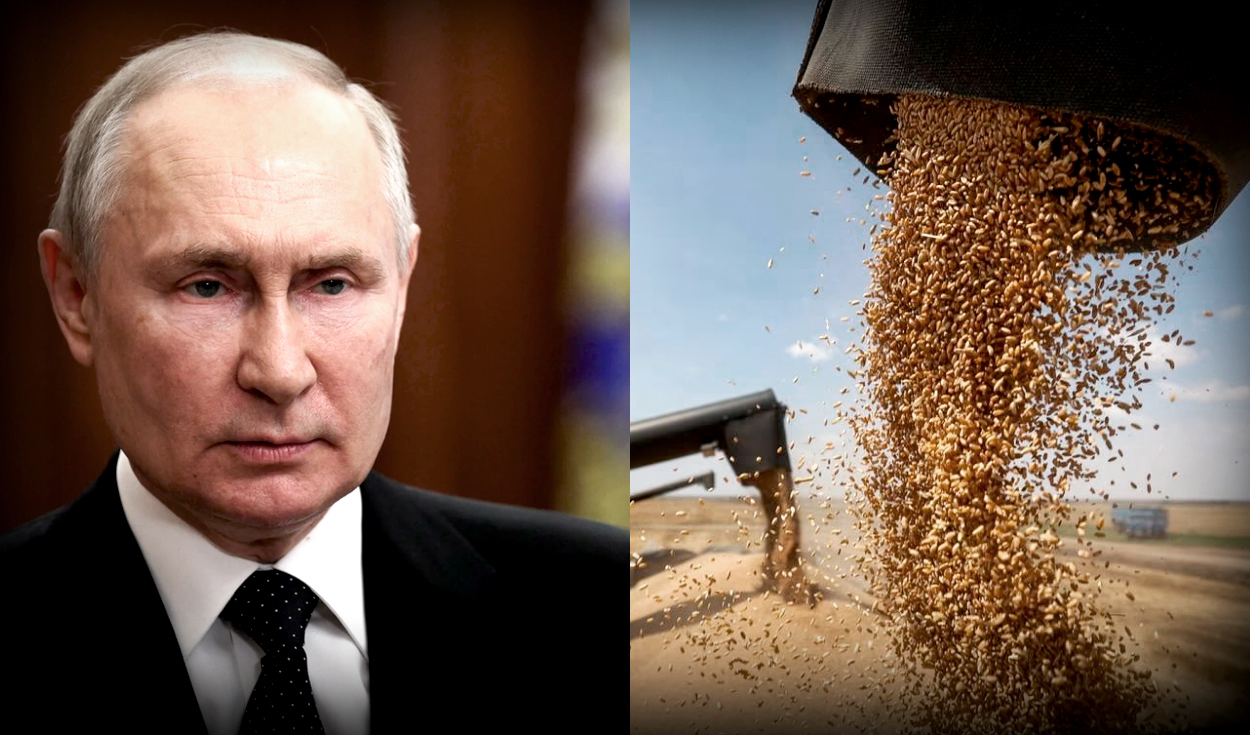
When Russia invaded Ukraine in February 2022, it blocked Ukraine’s Black Sea ports, but an agreement with Turkey and the United Nations (UN) in July allowed grain shipments to continue to flow. A year later, the Russians have set certain conditions to renew this deal. Authorities from Ukraine, which is one of the largest exporters of this product in the world —to more than 40 countries on three continents—, point out that this decision puts world food security at risk.
“In the coming hours and days there will be very intensive consultations at all levels to find a solution to this huge problem that Russia has created for the world,” said Dmitro Kuleba, Ukraine’s foreign minister.
The pact has allowed the export of more than 32 million tons of food from Ukraine.
Why did Russia refuse to renew the contract?
Russia had been expressing its intention to end the pact because Western sanctions have hurt its own food and fertilizer exports. So it was that, on Monday, July 17, Moscow claimed that it could no longer guarantee the safety of navigation in the northwestern Black Sea.
The deal, which was negotiated in July 2022 by Turkey and the UN, guaranteed the safety and passage of cargo ships along a 310-nautical-mile-long, 3-nm-wide Black Sea corridor to and from three Ukrainian ports, according to the BBC.
The Russian navy was allowed to inspect ships entering the Black Sea via the Bosphorus or Strait of Istanbul, to make sure they were not carrying weapons.
For his part, the UN promised Russia to help increase its own exports of grain and fertilizer. While the West has not imposed sanctions on its agricultural products, Moscow claims that other sanctions have deterred shipping companies, international banks and insurers from doing business with its producers.
Russia requested that its state agricultural bank, the Rosselkhozbank, be included again in the SWIFT global payment system, from which Russian banks were excluded after sanctions in June 2022. The request was rejected, but other alternatives were presented.
While Russia seeks to impose its conditions, the President of Turkey, Recep Tayyip Erdogan, reported that he will try to persuade his Russian counterpart, Vladimir Putin, to resume the agreement at their next bilateral meeting scheduled for early August.
IMF: Food inflation could worsen
The International Monetary Fund (IMF) said on Wednesday July 19 that Russia’s exit from the pact worsens prospects for global food security and threatens to exacerbate food inflation, especially in low-income countries.
“The discontinuation of the initiative affects food supplies to countries that are highly dependent on shipments from Ukraine, particularly in North Africa, the Middle East and South Asia,” the IMF said.
And he added that he “worsens prospects for food security and risks aggravating world food inflationespecially for low-income countries.
With information from BBC Mundo, Reuters and EFE
Source: Larepublica
Alia is a professional author and journalist, working at 247 news agency. She writes on various topics from economy news to general interest pieces, providing readers with relevant and informative content. With years of experience, she brings a unique perspective and in-depth analysis to her work.











